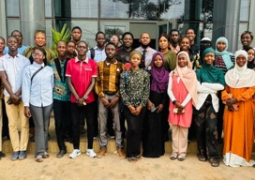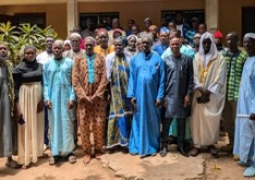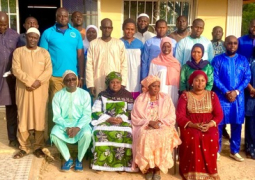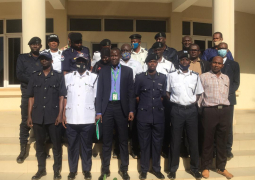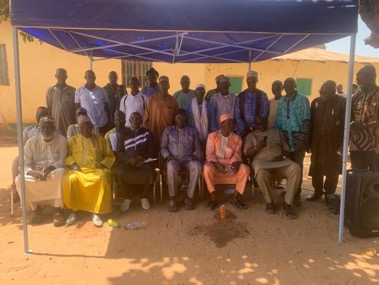
The alkalolu of Lamin, New Yundum, Busumbala, Mandinary, Daranka, Kubariko, Kerewan and Makumbaya made this disclosure in a joint communique read on their behalf at a recent presser to counter the false claims made by Rongo regarding land ownership in these communities.
At a recent presser held at the Lamin Town Bantaba, Yusupha Gomez, Secretary General of the Lamin Development Committee, said they are committed to promoting transparency and truth, that they are compelled to counter these misleading narratives and shed light on the facts surrounding land ownership in their villages.
“It has come to our attention that certain individuals and groups such as Rongo and the likes have been circulating rumours and false claims about land ownership, causing anxiety and confusion among our fellow citizens."
"We would like to take this opportunity to set the records straight and provide accurate information to ensure that the public is well-informed,” he mentioned.
On legitimate land ownership, he said they affirmed that land ownership is determined by legal frameworks established by 'our national and local authorities.'
These processes, he added, are designed to safeguard the rights of individuals and provide a fair and transparent system for land acquisition and transfer.
"Any claims suggesting unauthorised or illegitimate land ownership are baseless and should be disregarded,” he stated.
Gomez noted that Banjulinding being the home of the claimant is one of the last settlements established within the area and the settlement of Lamin existed prior to the founding of Banjulinding.
He further read that as such a resident of the latter cannot claim ownership as that is akin to claiming to be older than a father or elder brother, adding that Rongo’s father was at one time a guest of the people of Lamin and he resided with a one-time Alkalo of Lamin and as such his claims are at best a joke.
On document ownership, he noted that the Alkalolu invited at the briefing gave historical narrations as to how Lamin village came into existence.
"That the founding of Lamin Village came as a result of the people of Yundum allocating the said land for Lamin community to inhabit. Accurate information was provided by those in attendance and those narratives were clear cut and gave credence to the claim of Lamin while simultaneously dismissing the unfounded and baseless claims of the claimant."
He affirmed that it is essential to emphasize that land ownership is established through legal documentation such as titles, deeds, founding of communities and settlements or other officially recognised instruments.
Those documents, he added, serve as proof of ownership and are the only valid means of establishing one's right to land.
He appealed that any claims made without proper documentation should be treated with scepticism and that the documents provided to the High Court by Rongo are 'bogus and falsified'.
Gomez said for due diligence and verification, “we encourage individuals who are concerned about land ownership to conduct their due diligence by consulting official records and engaging with relevant authorities.
He said that local government offices, land registries, historical accounts of elders, Alkalolu and legal professionals are invaluable resources to verify land ownership and clarify any doubts or uncertainties.
He noted that relying on verified information is crucial to avoid falling victim to false news.
In combating misinformation, they [elders] recognize the detrimental impact that false news can have on communities, leading to division and mistrust.
"We urge members of the press and the public to exercise responsible journalism and fact-check information before disseminating it further."
By collectively combating misinformation, we can ensure a more informed and cohesive society. Both sides of any debate need to be heard so to ensure that both sides of the story are heard”.
For transparency and accountability, he said they call upon relevant authorities to uphold transparency and accountability in all land-related matters.
"Adding that by ensuring open access to information, streamlining bureaucratic processes, and fostering public participation, they can build a robust system that promotes fairness and minimises the potential for misinformation."
He added: “We urge decision makers to familiarize themselves with the historical background of Kombo and how the various settlements came into being so as to avert similar issues in the future from happening.
“We stand firm against false news and the dissemination of inaccurate information concerning land ownership. The founding of Lamin village can be dated as far back as pre-colonial era and compelling arguments were made supporting the claim that the land belongs to the people of Lamin and that its founding predates even the great grandparents of Mr. Lamin Jarjue,” he advanced.
The communiqué also revealed that Rongo’s father was not a citizen of The Gambia and that his host at Banjulinding were guests and allocated their land for use by the people of Lamin.
"We are committed to empowering our community with accurate knowledge and providing platforms for dialogue and understanding. Together, we can build a society that is well-informed, united and resilient. ”


